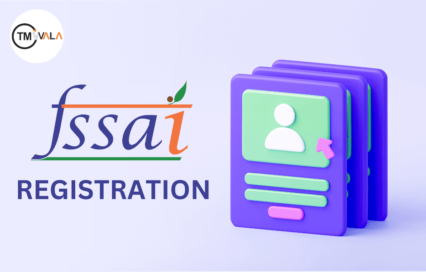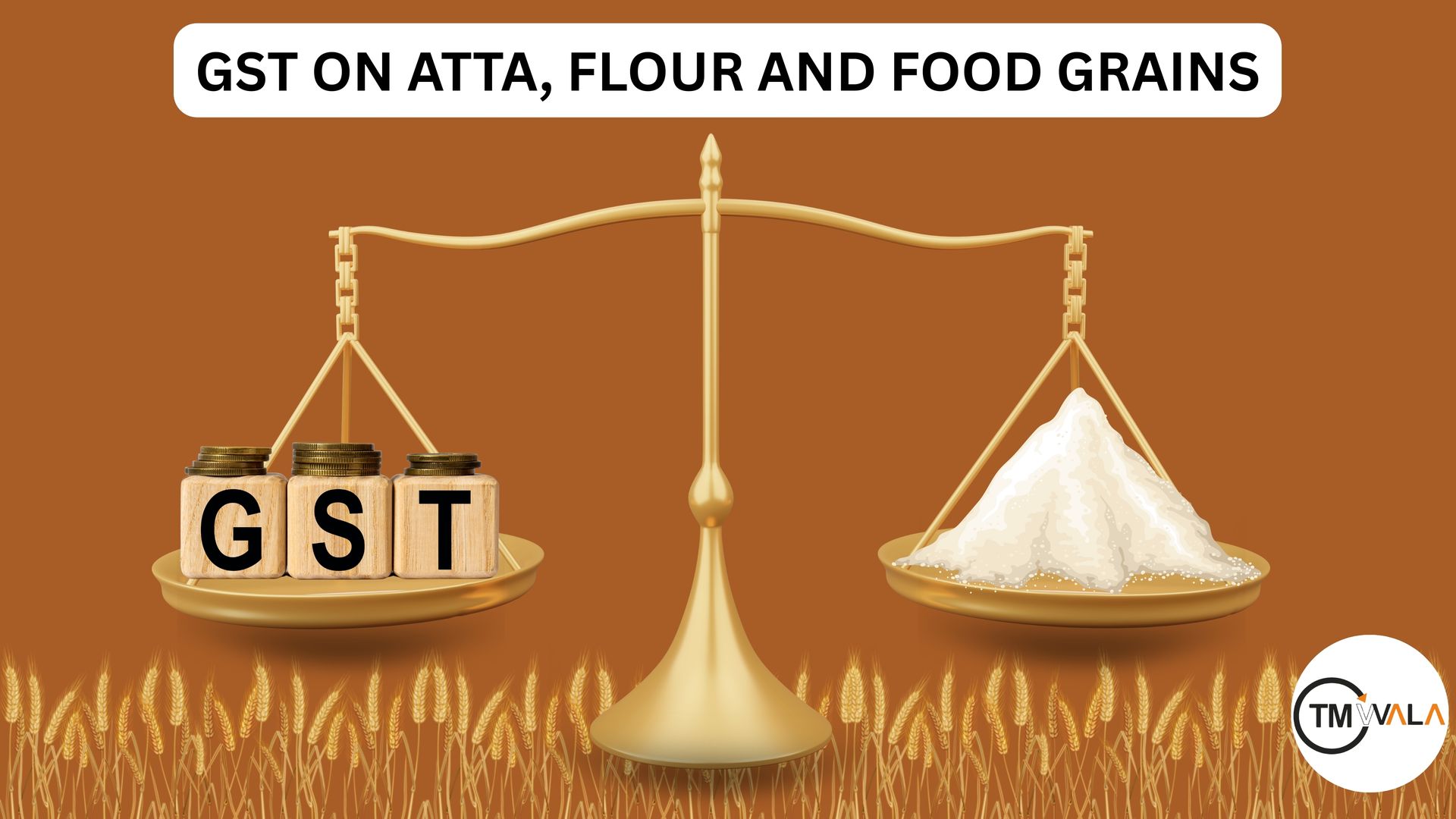
₹4,000.00 Original price was: ₹4,000.00.₹1,999.00Current price is: ₹1,999.00.

₹8,000.00 Original price was: ₹8,000.00.₹3,999.00Current price is: ₹3,999.00.

With the rollout of the Goods and Services Tax (GST) in 2017, various Indian industries have experienced significant shifts in the way they are taxed. The essential food products, including atta (wheat flour) and other grains, have experienced these said shifts as well. Although the government has left the essential food staples out of GST, there is still a distinction on what is charged and on what grounds. This difference holds in the case of branded and non-branded, packaged and non-packaged commodities, so it becomes an important factor in determining tax applicability.
Let’s immerse ourselves in the GST on atta and grains, dissecting concepts such as branded, enforceable rights and actionable claims and grasping the legalities in the process.
When it comes to GST, food grains and flour are categorized into two main groups based on their branding and packaging:
1. Non-Branded Items and Unpackaged Products (Exempted)
Raw food grains like wheat, rice, and pulses, including loose or bulk atta without any branding or branded packaging, are exempted from the usually applicable GST rate of 5%. This exemption is put in place by the government to keep essential food items affordable for everyone.
According to the Central Government’s Notification No. 2/2017, dated 28/06/2017, unbranded and unpackaged food grains and atta are to be categorized under the exempted list. This means that if atta or food grains are sold without a brand name or packaging, they are not subject to GST.
Freight Exemption: The transportation of unbranded food grains and atta by rail or road is also exempt from GST. According to Notification No. 12/2017-Central Tax (Rate), dated 28th June 2017, GST is not levied on freight charges related to transporting unbranded food products.
2. Branded and Packaged Products (5% GST)
When atta and grains are sold in a unit container and bear a registered or a protected brand name, they attract a 5% GST on atta. This includes products packaged and labeled for retail sale under a ‘legally protected brand.
For instance, if a company produces branded atta under a protected name, it must collect 5% GST on the sale price of that product. Branded products, even if they are in small retail packets or bags, are classified under this category and thus are subject to GST.
Case Law: In the case of Naga Limited [AAR-TN 2018], the court ruled that if a supplier relinquishes their enforceable rights over a brand name, they may be eligible for GST exemption, despite using a brand name on their product.
However, file your GST with TMWala with a very reliable process.
In Atta and grains, the branding and packaging aspect plays a decisive role in determining whether GST is applicable or not. Two key legal concepts govern this distinction:
1. Enforceable Right
An enforceable right is the legal right a brand owner has to prevent others from using their brand name. If a business owns a trademark and can legally enforce this trademark against infringement, the brand is protected under law. Products with such trademarks are not eligible for GST exemption and will be taxed at 5% GST on atta, flour and food grains.
For example, brands like “Patanjali” or “Aashirvaad” have enforceable rights over their brand names, and as such, their products are subject to GST on atta.
2. Actionable Claim
An actionable claim refers to a claim to a debt or beneficial interest that can be enforced by legal action. So, if a supplier voluntarily forgoes the right to enforce their trademark (e.g., by adding a disclaimer stating they do not hold enforceable rights), GST exemption may be claimed. Example: Many brands in the market label their products as unbranded to avoid GST, even though they use an identifiable name. If they do not legally enforce their brand rights, they are eligible for GST exemption.
This has been done to reduce the cost of transportation of staple foods in order to make them affordable for consumers.
For Businesses:
For Consumers:
Small-scale producers who do not have a registered trademark or a protected brand name can take advantage of the GST exemption by ensuring that their products are unbranded and unpackaged. This provides a cost-effective way for them to sell essential food products without the burden of the tax, which can lower the price for consumers and improve their market competitiveness. However, they must be vigilant in ensuring that their packaging complies with the conditions set out by the government to maintain GST exemption.
Local and regional brands that are not widely recognized can consider voluntarily relinquishing their enforceable rights over their brand to gain GST exemption, but they should weigh the long-term benefits of branding against short-term tax savings. In such cases, businesses should assess the effect of this decision on their brand’s growth and consumer perception.
While the current structure provides clear guidelines for GST on branded and non-branded atta and food grains, the government may revise these tax policies in the future. Changes could include:
As such, businesses and consumers must remain agile and responsive to any future changes in the GST framework for food grains and atta. Being proactive and staying informed through government bulletins and updates will allow both groups to take advantage of any changes that benefit them.
The framework of GST on atta, food grains and flour aims to balance taxation with affordability, ensuring that essential food items remain accessible to all. While unbranded and unpackaged essentials are exempt from tax, branded and packaged products face a 5% GST. Businesses can navigate this framework by making informed decisions about branding, packaging, and compliance.
By staying updated on government notifications, rulings, and any new developments, both producers and consumers can optimize their understanding of GST implications and ensure compliance while also making cost-effective choices. Ultimately, the goal is to create a more efficient, transparent, and sustainable taxation system that benefits both businesses and consumers in the long run.
Need assistance with GST Registration? TMWala provides expert guidance for simple and convenient business registration. Contact us today!
Author: Apoorva Lamba, 2nd Year LLB. Student of Madhav Mahavidyalaya, Jiwaji University, Gwalior
Link to similar articles: https://tmwala.com/blog-role-of-msmes-in-boosting-the-indian-economy/
Link to Government’s official GST Portal: https://www.gst.gov.in
Keywords: GST on atta, GST on Flour, GST on Food Grains,
Get started instantly

TMWala
Your one stop shop for all your business registration and compliance needs.
Our Services
© Copyright TMWala. All rights reserved
Choose your Entity Type
Individual/ MSME/ Sole Proprietorships
Non-MSME/ Large Entities

₹1,500.00 Original price was: ₹1,500.00.₹999.00Current price is: ₹999.00.
Trademark Application @ ₹999* (Basic Discounted Plan for MSME/Individual/Sole Proprietorships) Best-Selling, Economical & Easy

₹1,500.00 Original price was: ₹1,500.00.₹999.00Current price is: ₹999.00.
Trademark Application @ ₹999* (Basic Discounted Plan for Non-MSMEs/Large Entities) Best-Selling, Economical, Quick and Easy
Choose your Entity Type
Individual/ MSME/ Sole Proprietorships
Non-MSME/ Large Entities
₹3,500.00 Original price was: ₹3,500.00.₹1,999.00Current price is: ₹1,999.00.
Government Fees
₹4500/-
₹3,500.00 Original price was: ₹3,500.00.₹1,999.00Current price is: ₹1,999.00.
Government Fees
₹9000/-
Choose your Entity Type
Non-MSME/ Large Entitie
Individual/ MSME/ Sole Proprietorships

₹9,000.00 Original price was: ₹9,000.00.₹3,999.00Current price is: ₹3,999.00.
Trademark Application @ ₹3999* (Premium Discounted Plan for Non-MSMEs/Large Entities) Comprehensive
Government Fees
₹9000/-

₹9,000.00 Original price was: ₹9,000.00.₹3,999.00Current price is: ₹3,999.00.
Trademark Application @ ₹3999* (Premium Discounted Plan for MSME/Individual/Sole Proprietorships) Comprehensive
Government Fees
₹4500/-